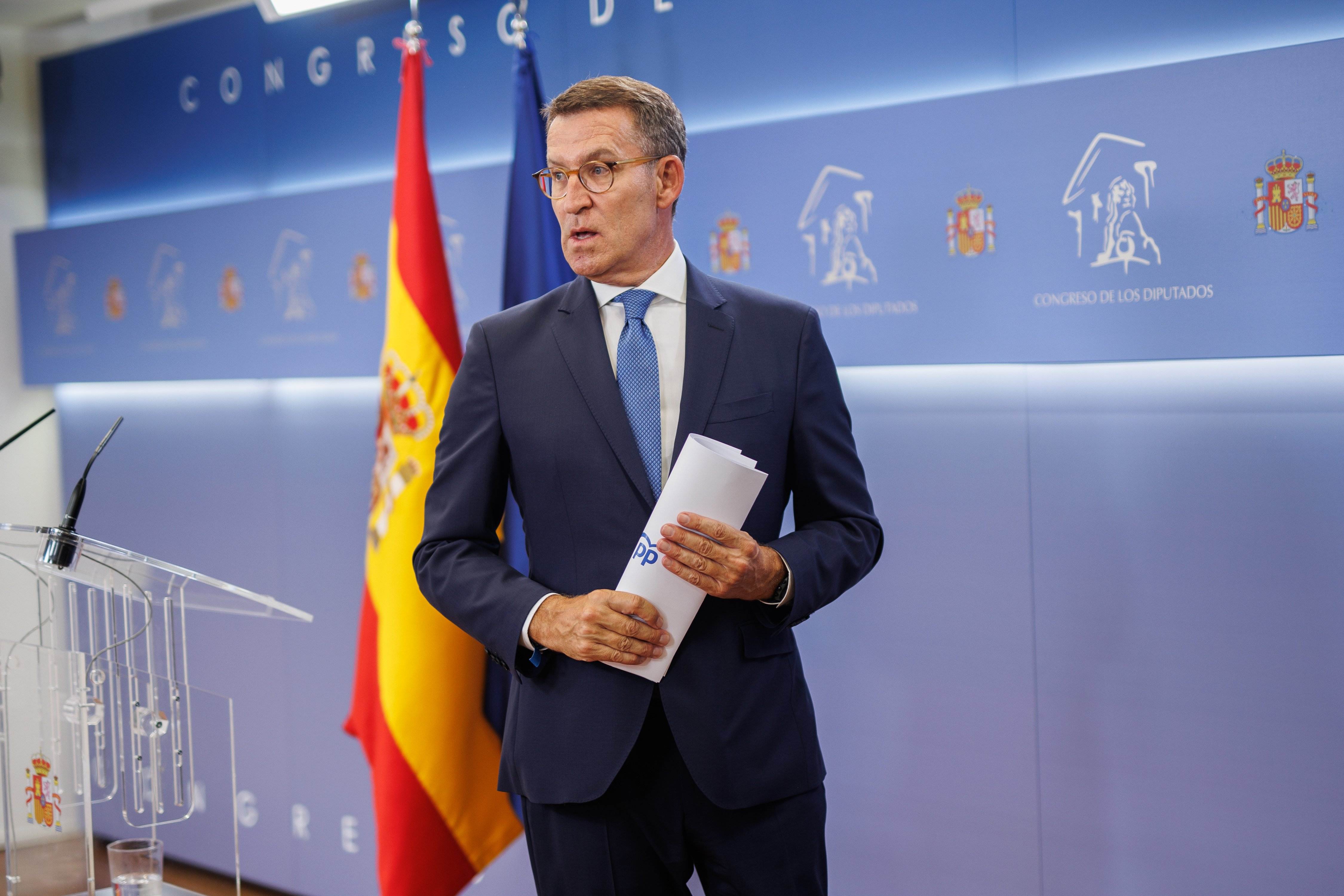The speaker of Spain's Congress of Deputies, Francina Armengol, has made her decision and called the debate on the investiture of Alberto Núñez Feijóo as new Spanish prime minister for September 26th and 27th. This follows Monday's announcement by the Spanish king, Felipe VI, that he had chosen the People's Party (PP) leader as the candidate who will seek the confidence of MPs to lead a new government. In a brief institutional statement, Armengol has explained this Wednesday that she had agreed on the calendar with Feijóo and affirmed that, with the dates selected, "a more than prudential time is given" for the candidate to negotiate with the political parties to obtain support. If he is unsuccessful in the two-ballot vote that will begin on those dates, then a new countdown begins: first, a two-month period in which other investiture proposals may be brought to Congress, but, should they also fail, the constitutional provisions mean that a repeat Spanish election will automatically be scheduled for January 14th, 2024.
The speaker has made use of the experience of previous legislatures to set the date for the investiture debate: that is, the average time elapsed between the king's announcement of the candidate and the date of the debate is "approximately one month". That's why, according to Armengol, setting the dates for the parliamentary session on September 26th and 27th "assumes that 35 days will have passed" between one milestone and the other. In addition, parliamentary sources have affirmed that, in deciding the calendar, Armengol prioritized "dialogue" with the candidate, who expressed that if the debate took place next week "he would not have time" to speak with the rest of the political parties.
In any case, there is now a month of margin for Feijóo to carry out the round of contacts that he himself promised to start on Monday of next week. The PP leader was clear that the debate could not take place immediately because, at this point, he can only count on 172 votes in his favour, those of his own party, plus far-right Vox, Navarra's UPN and the Canarian Coalition, four short of the absolute majority that the first vote requires. At the same time, the setting of the date gives the PSOE a comfortable time to manoeuvre so that it can negotiate with the pro-independence parties for their support in the event that, as expected, Feijóo's investiture ends up failing. So far, Sánchez is guaranteed 158 votes (PSOE, left-wing Sumar and the Basque party EH Bildu) and, if the Galician politician fails in Congress, both he and Sánchez will have until November 26th to achieve the required majority through another investure debate.
With the date announced, the Spanish political calendar with all its possible variants is now configured. The Spanish Constitution establishes that, after a first investiture (incorporating a two-ballot voting process) fails, a countdown of two months (60 days) begins, after which, if no viable prime ministerial candidate has been found, parliament is automatically dissolved. Then, exactly 47 days later (fewer days than in an ordinary election call) Spaniards would return to the polls. That is to say, a new election would fall on January 14th, 2024. As it is a repeat election, the election campaign would only last one week and would start during the week of Reis, the last major Christmas feast, on January 6th. Despite this, congressional sources admit that the scenario of a new general election does not fall within Armengol's plans.

